#( Leonardo Gandia )
Explore tagged Tumblr posts
Text

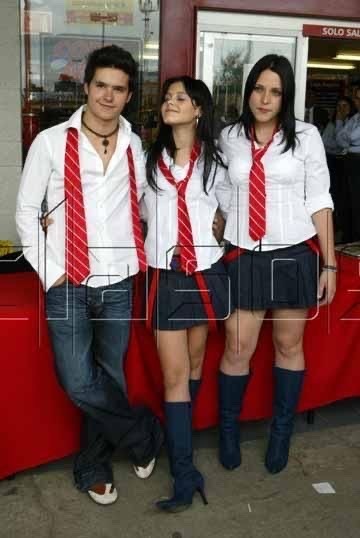
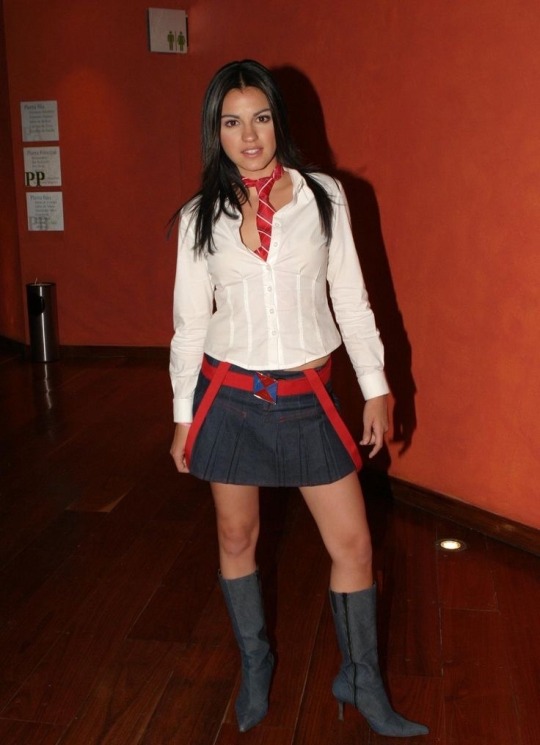
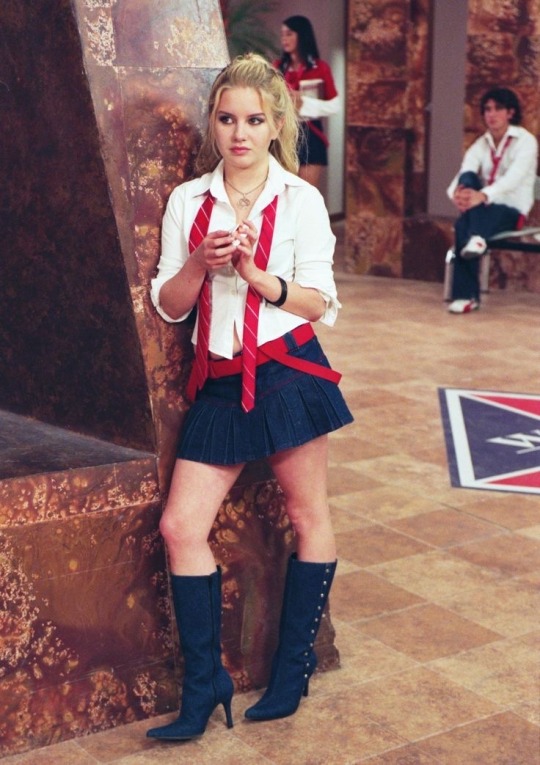
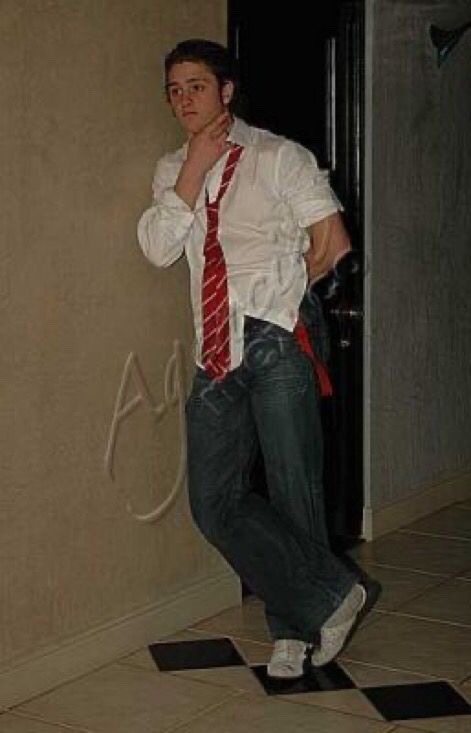
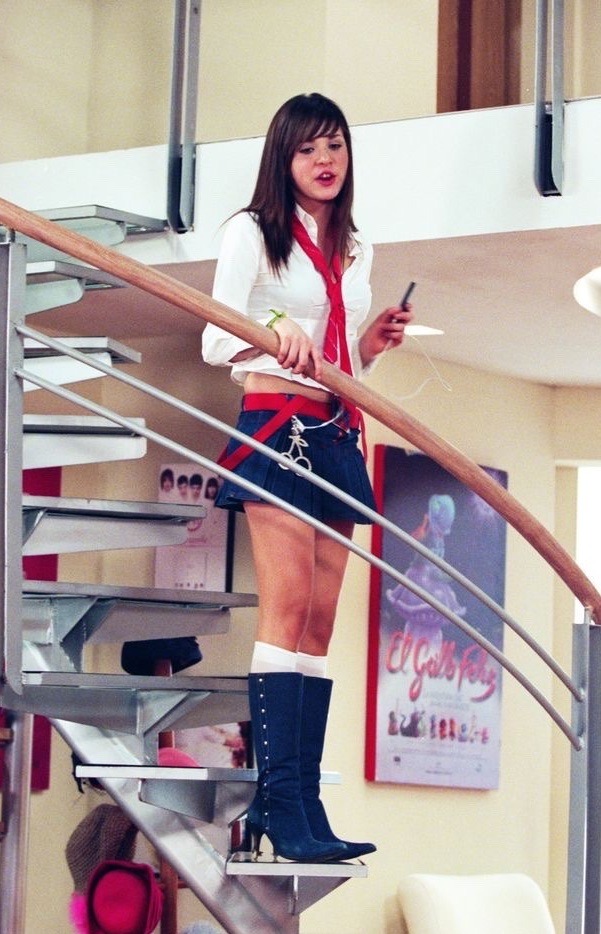


#mia colucci#roberta pardo#lupita fernandez#pilar gandia#leonardo goycolea#bianca delay#diego bustamante#sol de la riva#lola fernandez#isaac urcola
2 notes
·
View notes
Note
Hello, What were the opinions of the people who personally knew Cesare ? Thank you !
Hello ;) So, there were a lot of opinions made about Cesare by his contemporaries, but most of the opinions come from people who met him, not knew him intimately. The unfortunate thing here is that Cesare is mostly seen through the lenses of people outside his inner circle: ambassadors, orators, enemies who wrote daily dispatches, reports, letters to their employers and others. Some of this material has weight and it’s helpful, but still they all contain the unavoidable political element and focus towards Cesare as the political figure, not Cesare as a person. There are interesting glimpses of his personality and intimate life here and there, but never enough to make more than a sketch of it, and often much of it is distorted, with incorrect information and/or evaluations which were believed at the time to have been accurate. Cesare through the lenses of people inside his inner circle: people who knew him intimately, people he trusted and loved and vice-versa, are frustratingly limited, there’s almost nothing, which creates a big unbalance about his figure and his life. I believe the opinions of his beloved tutor Giovanni Vera, his most known secretary and adviser Agapito Geraldini di Amelia, or Miguel da Corella, or of his mother, his sister, his wife, would be incredibly valuable in order to have more precise knowledge, and a more rounded assessment about his person, in all of its facets, since we don’t have that, what fills up this gap are the words of one of his first secretaries, the alleged words of his father, Rodrigo, and the words of intellectuals and poets who interacted with him at his father’s court in Rome, some later following him at his own court in the Romagna, beneath the exaggerated flattery common in these writings, these men make some interesting observations, and express a genuine opinion about Cesare, aside from just the political man, which helps to shed a light into his personality, his qualities, and other aspects of his life. With this in mind, I gathered opinions that can be confirmed by Cesare’s own documented actions, and that I find are generally reliable: not entirely dominated by personal/political bias, and absent of the malice and gossip which became more common the more powerful Cesare and his family became. There are mix between the first group (ambassadors, orators, enemies, etc), the second group (people close to him, intellectuals and poets), and maybe there will be one or two which does not belong to either group, so I’ll leave them for last as a type of miscellaneous third group, in chronological order: 1488:
“What thanks can I give you, Cesare Borgia? May this auspicious day be celebrated as a festive day, in which this work comes to light only out of your love, and if our judgment is worth something, it will be most useful for general prosperity. In this book, we teach how to write a poem, exploring and manifesting all the secrets of metric art. Certainly a work that will please you very much. [...]Add to that your great and truly effective love for beautiful letters.You, Cesare, are truly worthy of much commendation, if at such a young age you act with the wisdom of an old man. Forward, then, O hope and ornament of the Borgia family, and accept with a good heart our Syllables, an offering of your devoted friend. So I believe that my name, joined to your eternal name and that of [your house], will have ornament and life."
- Extracts from a dedication written to Cesare by Paolo Pompilio,h in his Syllabica, a literature text-book of verse composition, published in the same year. 1492:
“Cesare Borgia profited so much that, with ardent ingenuity, he discussed the questions posed to him both in Canon law and in Civil law.”
- Paolo Giovio, concerning the Disputation for the laurea at the University of Pisa, where Cesare studied from 1491 to 1492. 1493:
"On the day before yesterday I found Cesare at home in Trastevere. He was on the point of setting out to go hunting, and entirely in secular habit. that is to say, dressed in silk and armed. Riding together, we talked a while, I am among his most intimate acquaintances. He is a man of great talent and of an excellent nature; his manners are those of the son of a great prince; above everything, he is joyous and light-hearted. He is very modest**, much superior to, and of a much finer appearance than his brother the Duke of Gandia, who also is not short of natural gifts."
- Disp. written by Gianandrea Boccaccio to his employer, the Duke of Ferrara, Ercole d'Este. 1497:
"Nature has engendered in you not the seed of virtù, but virtù itself, and in occupying herself to form you, [she] has adorned your body with an excellent form, dignity, and every beauty, and provided the soul with moderation**, decorum, gravity, benevolence, and above all royal liberality**, which nature seemed to have surpassed herself. And this liberality of yours, is shown with writers and artists."
- Extract from a dedication written by one of Cesare's secretaries, Carlo Valgulio, in the first transl. of Cleomedes: De contemplatione orbium excelsorum. 1499:
“By his modesty, his readiness, his prudence, and his other virtues he has known how to earn the affections of every one.”
- Letter written by Giuliano Della Rovere, to pope Alexander VI, concerning Cesare's arrival in France.**
"The Pope's son was very gallant..."
- Baldassare Castiglione, in a letter after seeing the entrance of Cesare and his suite alongside King Louis XII of France in Milan. 1500:
“To-day, about the twenty-second hour (four in the afternoon), after he had dined, he had signor Ramiro fetch me to him; and with great frankness and amiability his Majesty first made his excuses for not granting me an audience the preceding day, owing to his having so much to do in the castle and also on account of the pain caused by his ulcer. Following this, and after I had stated that the sole object of my misson was to wait upon his Majesty to congratulate and thank thim, and to offer your services, he answered me in carefully chosen words, covering each point and very fluently. The gist of it was, that knowing your Excellency’s ability and goodness, he had always loved you and had hoped to enjoy personal relations with you. He had looked forward to this when you were in Milan, but events and circumstances then prevented it. But now that he had come to this country, he --determined to have his wish-- had written the letter announcing his successes, of his own free will and as proof of his love, and feeling certain that you Majesty would be pleased by it. He says he will continue to keep you informed of his doings**, as he desires to establish a firm friendship with your Majesty, and he proffers everything he owns and in his power should you ever have need.[...]When I take both the actual facts and his words into consideration, I see why he wishes to establish some sort of friendly alliance with your Majesty. I believe in his professions, and I can see nothing but good in them.”
Postscript: “The Duke’s daily life is as follows: he goes to bed at eight, nine, or ten o’clock at night (three to five o’clock in the morning). Consequently, the eighteenth hour is his dawn, the nineteenth his sunrise, and the twentieth his time for rising. Immediately on getting up he sits down to the table, and while there and afterwards he attends to his business affairs. He is considered brave, strong, and generous, and it is said he lays great store by straightforward men.[...]He is great of spirit and he seeks eminence and glory.”
- Extracts from a Disp. of Pandolfo Collenuccio to his employer, the Duke of Ferrara, Ercole d’Este, from Pesaro. 1501:
"This lord is very magnificent and splendid, and so spirited in feats of arms that there is nothing so great but that it must seem small to him. In the pursuit of glory and to acquire a State he never rests, and he knows neither danger nor fatigue. He moves so swiftly that he arrives at a place before it is known that he has set out for it. He knows how to make himself beloved of his soldiers, and he has in his service the best men of Italy. These things render him victorious and formidable, and to these is yet to be added his perpetual good fortune."
- Disp. written by Niccolò Machiavelli to the Signory of Florence. 1502:
"He [Cesare] argues with such sound reason that to dispute with him would be a long affair, for his wit and eloquence never fail him (dello ingegno e della lingua si vale quanto vuole...)
-Disp. written by Francesco Soderini, from Urbino, to the Signory of Florence.
"The duke[Cesare] is good-natured, but he cannot tolerate offenses."
- Rodrigo Borgia, to the Ferrarese ambassador B. Constabili.
Miscellaneous: A certain author named Camillo di Leonardo from Pesaro dedicates to Cesare, in the year of 1502, his famous work Speculum Lapidum, in which he 'commends the duke for his great love of letters, his courteous liberality towards the scholarly, the care he used when collecting the beautiful and numerous [works] of the library of Cesena, and even his sweetness and his gentleness.' Gaspare Torella, one of Cesare's personal physician and advisers also dedicated to him his Dialogus de Dolore, in which he says he is "...pleased that [Cesare's] virtù surpassed those of the great ones of Rome, such as the justice of Brutus, the constancy of Decius, the continence of Scipio, the loyalty of Marco Regolo, and the magnanimity of Paolo Emilio.” The French commanders used to say of Cesare: “At war he was a good companion and a brave man." The Spanish historian Zurita, atypically pays a compliment to Cesare when assessing the situation in Italy and of pope Julius' panic when hearing about Cesare's escape from the Spanish prison in 1506, he writes: "The duke was such that his very presence was enough to set all Italy agog; and he was greatly beloved, not only by men of war, but also by many people of Tuscany and of the States of the Church." Lastly, during the winter of 1500-1501, a scholar and poet named Francesco Uberti, native of Cesena, adressed to Cesare a volume of epigrams, all which show the Romagnese opinion about him. According to Uberti, Cesare's Romagnese subjects learned his temper was 'mitissima' (gentle), 'placidissima' (calm) and his 'crueltà' (cruelty) was the severity necessary to repress political disorders. There is also other epigrams where Tiberti praises Cesare's clemency, "pious and kind Cesare..." ** The terms modesty and moderation, according to Gregorovius, can be also taken to 'understand as part and manifestation of a liberal education,...’ and the term liberality means generous, which Cesare was particularly reputed as being, to such a degree his genorosity was called at the time after his own name as “liberalità cesarea”. ** I decided to add Della Rovere’s words about Cesare, because as writer and historian Anthony Everitt said in one of his books: “Praise from one’s worst enemy is the most annoying, but also the most credible, of compliments.” and because even if Della Rovere’s words are insincere, likely, these words can nevertheless be confirmed by the opinions of others about Cesare, esp. in the historical records about his soujour at France. **Cesare had sent long letters to Ercole d'Este while he was at the conquest of Imola and Forlì, telling him the details of the military campaign.
#ask answered#anon ask#cesare borgia#césar borgia#house borgia#writing this really made me painfully aware again of how much we don't know and will never know about cesare#i'm gonna go cry now excuse me
44 notes
·
View notes
Note
Hello ! Question about Cesar Borgia: What opinions did people who knew him have? Thank you.
hi anon, thanks for this question!
One of our main sources is by Machiavelli who described him as ‘truly splendid and magnificent’, claimed him to be ‘popular with his soldiers’ as he had their unwavering loyalty, but also said he was ‘considered cruel’ during war. I think Machiavelli admired Cesare to an extend, as he modelled ‘the prince’ on him, but I believe it is safe to say that he didn’t see all the sides to him.
Gian Andrea Boccaccio, the Ferrarese ambassador, who claimed to be ‘among his most intimate acquaintances’ said:
Cesare has great talents and a noble bearing, like the son of a prince...he is invariably carefree and cheerful, and always seems in high spirits but he shows no propensity to be a churchman. (hollingsworth, the borgias)
There are many versions to this, including this one:
He is man of great talent and of an excellent nature; his manners are those of the son of a great prince; above everything, he is joyous and light-hearted. He is very modest, much superior to, and of a much finer appearance than, his brother the Duke of Gandia, who also is not short of natural gifts. (Sabatini, Life of Cesare Borgia)
We can also claim that Cesare was friends with and well liked by Micheletto Corella, Leonardo da Vinci, Louis XII, and his sister, Lucrezia. Of course, on the other hand, he had many enemies who hated him and did not think well of him.
Let me know if you have any other questions!
20 notes
·
View notes
Photo

☆ LEONARDO ADRIAN GANDIA FERRER
Edad: 32
Cupo/Ocupación: Auxiliar de vuelo / Modelo
Faceclaim: Alfonso Herrera
¿Cuanto tiempo tiene en Londres? 4 años
@gandia-under
☆ PERSONALIDAD
Leonardo suele ser poco expresivo con su rostro pero por dentro es una persona bastante interesante y extrovertida, suele pasar momentos con amigos y suele ser muy romántico con todos, tiene ciertos rasgos seductores y generalmente no puede contenerse a coquetear con las personas por lo cual sobrepasa los límites en algunas ocasiones, aunque sabe detenerse cuando alguien le dice que no.
Suele ser centrado para tomar decisiones importantes pero generalmente termina haciendo lo que mejor convenga en el momento sin mirar en el futuro.
Es un enamoradizo y un poco iluso.
+ (alegre, empático, paciente) - (evita responsabilidades, celoso, impulsivo)
☆ DATOS IMPORTANTES
Leo creció en México, su familia tenía renombre y una serie de restaurantes en toda la república que les dio bastantes recursos, podría decirse que realmente nunca sufrió por nada, pero al tenerlo todo fue un tanto malcriado y se volvió lo bastante vago para que no le interesaran las cosas en lo absoluto.
Conforme fue creciendo se dio cuenta que no destacaba entre los demás compañeros, estudió bachillerato pero no se sentía apto para estudiar alguna licenciatura aunque siempre lo quiso, lo único que pudo estudiar era para ser modelo porque todos le decían que era guapo además de que tenía un buen cuerpo por el ejercicio que hacía diariamente.
A través de las fiestas cada semana se volvió “rp” de varios antros, tan solo con decir “LEO” obtenían descuentos, eso se debía a que generalmente posteaba fotografías semi desnudo en Instagram y tenía tantos followers que se volvió una especie de influencer.
Su vida era tan vacía y monótona que solo salía de fiesta, ponía fotos en redes sociales, sus padres comenzaron a desesperarse de él y prácticamente lo echaron de su casa, por lo cual solo decidió salir a enfrentar el mundo realmente, Londres era el lugar más lejano en el cual podía relativamente iniciar una nueva vida, (aunque sus padres aún le daban dinero en cierta forma).
Una vez en Londres se instaló pero su vida comenzó a ser lo mismo, estuvo un tiempo en Underground Night Club hasta que lo reemplazó un chico llamado Elliot, ciertamente más joven y apropiado para el empleo, se hicieron buenos amigos a pesar de ello.
En un viaje para ver a su familia en México una aerolínea lo contactó porque al parecer tenía un perfil completamente indicado para ser sobrecargo en el avión, su nuevo trabajo dependería de ser lindo y atender a las personas, a cambio de una paga y poder estar varios días de viaje en cada vuelo lo cual sería perfecto para conocer muchos lugares, así que tomó ese empleo. Descansa varios días a la semana los cuales ocupa para tomarse fotografías o algún empleo extra, siempre postea todo y últimamente sus followers aumentan. Considera que es algo muy superficial pero tampoco le molesta.
☆ DATOS EXTRAS
Quiere encontrar a su amor perfecto aunque se la pasa probando de todos lados.
Eligió ser modelo porque todos le dijeron que podía serlo y creyó que si.
Lo contrataron en la agencia simplemente por su rostro.
Generalmente se acuesta con alguien distinto en cada vuelo.
Una vez tuvo relaciones con Gerard Withmore y siempre lo cuenta.
Siempre quiso estudiar alguna licenciatura pero nunca creyó que era suficientemente bueno para algo.
No tiene idea de que surgirá en su vida.
Siempre toma decisiones impulsivas y poco congruentes.
La mayor parte del tiempo no toma nada en serio.
Sigue evitando a su familia.
Su bebida favorita es el frappé de chicle.
Ha conocido muchos lugares por sus viajes.
Es muy puntual.
Tiene muchos seguidores en Instagram.
Tuvo que tomar clases para ser sobrecargo y toma cursos muy seguido.
0 notes
Text
Muses list
Mutantes
Familia Smythe
Jake Smythe (Darren Criss) - Ilusionista
Joey Smythe (Connor Paolo) - Manipulación estelar
Jaen J. Smythe (Myko Olivier) - Ilusionista
--
Familia Hristov Dupont
R.A.Z. Andrew D. Hristov de Dupont (Jeremy Jordan) - Dragón
Aleksandr D. Hristov Dupont (Jason Ralph) - Dragón
Caesar D. Hristov Dupont (Charlie Carver) - Dragón
Jake D. Hristov Dupont (Shawn Mendes) - Dragón
--
Familia Knight
William Knight (Colin O’Donoghue) - Manipulación de luz
Derek Knight (Dean Geyer) - Ángel
Henry Coldwater (Josh Dallas) -Human
Patrick Bennett (J.R. Bourne) - Human
Charles Oberlin (Jhon Stamos) - Human
Magicians:
Lander De’Ath (Darren Criss) - Hechicero
André Wellington (Shawn Mendes) - Hechicero
Sebastian Kinberg (Matthew Daddario) - Hechicero
Humans:
Gerard Withmore (Darren Criss) - Diseñador
Elliot Blackworth (Colton Haynes) - Bartender / GoGo Dancer
Edward Steiner (Aaron Tveit) - Psicólogo
Leonardo Gandia (Alfonso Herrera) - Modelo
Quentin Rhtett (Brendon Urie) - Activista
Pokémon Trainers
Edward Holbrock (Aaron Tveit) - Trainer
1 note
·
View note
Photo

Con la participación de 235 pedalistas se llevó a cabo el Gran Premio Nachos Bike -1° Fecha Calendario Cordobés-Oncativo. Ruedas Gordas 1- Fernando Arana 2- Alexander Gallo 3- Samir Martinez Gallego 4- Ramón Carrizo 5- Matias Tochetti 6- Jose Castillo 7- Alexis Della Santina 8- Lucas Luque 9- Ruth Ruti --40 1- Nahuel Bustos 2- Javier Arroyo 3- Fernando Rivero 4- Gustavo Pereyra 5- Marcelo Castillo + 40 Caballeros 1- Gustavo Gobetto 2- Marcelo Pereyra 3- Jorge Malon 4- Carlos Mercado 5- Leon Ronald Debutantes Damas 1- Priscila Álvarez 2- Dahyana Peretti 3- Andrea Mestre 4- Eliana Barroso Master D y E 1- Luis Brizuela 2- Enrique Cossutta 3- Oscar Retegui 4- Higidio Ramos 5- Enrique Moyano Master C 1- Manuel Salgado 2- Gustavo Sampo 3- Mauricio Lubrina 4- Carlos Sosa 5- Oscar Simoncelli Adaptados 1- Duilio Breppe Damas 1- Micaela Gutiérrez 2- Julieta Sainz 3- Gisela Cattaneo 4- Mirta Franzoi 5- Cristina Greve Master B 1- Edgar Calderón 2- Leonardo Cabrera 3- Mariano Vissani 4- Edgardo Schrainer 5- Nestor Pineda Elite II- Menores 1- Alejo Betique 2- Tomas Audagna 3- Guillermo Mansilla 4- Iñaki Guruchaga 5- Fernando Gandia Elite-Sub 23-Junior-Master A 1- Santiago Giomi 2- Ezequiel Simoncelli 3- Juan José Rivero 4- Claudio Crespo 5- Franco Bustos 6- Maximo Cornejo 7- Diego Fonseca 8- Toribio Moreira Organizó: Nacho's Bike Fiscalizo: Federación Ciclista Cordobesa Próxima Fecha 23/02 Villa Dolores https://www.instagram.com/p/B8r3g68j-bp/?igshid=kv8crm85a40
0 notes
Photo
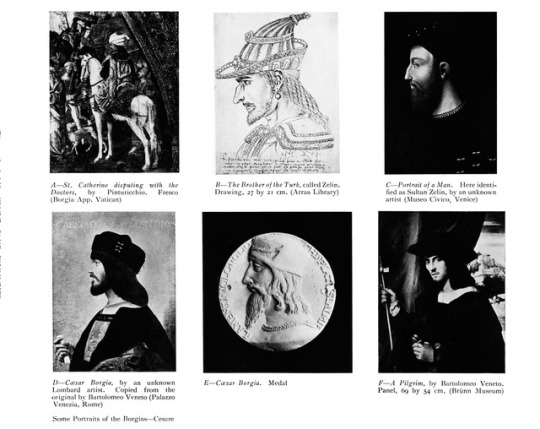
Warning: the article is overly influenced by the black legend. Anyway, it’s interesting and worth a look, especially for the inscription round the medal made after Valentino’s downfall.
Caesar Borgia was the most feared man of his time. Murder was his pastime and also his business. He decreed the assassination of his own brother, the Duke of Gandia, and even threatened his own father with death. Alexander VI trembled before him, and yet loved him. Cruelty seemed quite natural in those days. The condottieri did not value their own lives; still less the lives of others. And yet Cesare was a coward. He did not assassinate his victims himself, but preferred to pay others to do so. Many of those rough Italian warriors had good human qualities: capacity for love and friendship, taste for poetry, architecture and gardens. Cesare loved nothing but gold and rich clothing. By a curious irony of fate, this barbarous personage had for a whole year in his service an engineer named Leonardo da Vinci, a man indifferent to everything but the highest flights of thought and art. During this year he wrote to a friend: “Do not pity me; I am not poor; poor only is he who desires many things.” Cesare, on the contrary, was ever eager to accumulate more and more land, more and more gold. This avaricious noble was a past master of the art of advertising. His purpose was to become known and feared throughout Europe. And in fact, he attained a wide-spread notoriety; he was as popular as Charlie Chaplin in our days and he was at the same time despised like Herod. His fame spread as rapidly as that of a popular actor and died down just as quickly. Born on the steps of a papal throne, he enjoyed papal wealth and power, but was not able to maintain his position after the death of his father, Pope Alexander VI. He was imprisoned in Rome, sent to Spain and remained there two years in captivity. He then escaped, but was killed in a night action in 1507 near Vienna. A few years afterwards, by order of the Bishop of Pampeluna, who thought that such an evil man should not even receive burial, his bones were thrown out of his tomb. The body of the man, who filled so many coffins, lay unburied. The story of his life lived on in the minds of the people, vague and fantastic as a popular legend. What was he like, this extraordinary man? The cavalier in the background of Pinturicchio’s fresco in the Borgia apartments is not Cesare Borgia, as is generally supposed, but the truth is that the son of Alexander VI was subsequently confused with one of his most famous victims. About 1482, Djem, younger brother of the Emperor Bajareth, fled to Rhodes, came afterwards to France, and was sent to Rome in 1489. He was received there with honours. Whenever he appeared in the train of the Pope, his remarkable face, his perfect horsemanship, and the magnificence of his oriental garments were much admired. Pinturicchio gave to this picturesque Oriental gentleman a prominent place in his picture St. Catherine disputing with the Doctors. There is no doubt that the warrior on a white horse is Prince Djem [PLATE A], as stated in a sketch book of the sixteenth century, entitled the “Recueil d'Arras,”’ in which appears the same eagle-faced [PLATE B]. Djem introduced the fashion of eastern coats into Rome. Cesare was envious of his success and imitated his style of dress. The citizens of Rome were scandalized when the son of the Pope appeared in solemn processions arrayed in oriental garments and wearing a large white turban like a Turk. In the eyes of Bajareth, this brother, living so far away in the midst of Christians, was an ever- present danger. In 1496, the Sultan offered three hundred thousand pieces of gold to Alexander VI, asking him by letter to send his brother “ to a better land.” Soon afterwards, the army of Charles VIII conquered Rome. The King of France, Prince Djem and Cesare all rode together to Naples. On the way, Cesare escaped. A few days later, the Oriental nobleman died a mysterious death, and it subsequently transpired that Cesare was richer by a hundred thousand pieces of gold–the amount promised by Bajareth to the murderer of his brother. It comes as a surprise after this story to find in the Museo Civico in Venice the portrait of the victim over the name of his murderer. It is the same face as that of the “Recueil d'Arras,” only the hair is dressed in Italian fashion, a fine net keeping it together, as in many portraits of that time [PLATE C]. As a matter of fact, there was a certain resemblance between the two men, Djem and Cesare. The difference consisted in the finer profile and aquiline nose of the Turk, while Cesare had quite a straight nose and the contours of his face were rather heavy and effeminate. The inscription round a medal made after his downfall, runs as follows: Volgi. Gliochi. Piatosl. Amiie Lamenti. And on the reverse side, round the figure of Fortune with a sail riding on a dolphin, we read: Poche. Fortuna. Vole. Che. Cosi Tstenti (Turn thy compassionate eyes to my lamenting, since it is Fortune’s will to be so niggardly) [PLATE E]. Here we see him as he really was, and this medal affords further proof that the original of the portrait by Bartolomeo Veneto was indeed the son of Alexander VI. We find a copy made after the lost original of this painting in the Palazzo Venezia in Rome. It shows the Duke in profile, holding a roll of documents in his right hand [PLATE D]. The inscription is as follows: Caes. Borgia Valentinus. Bartolomeo Veneto was a portrait painter only in the latter part of his life. He painted some simple portraits in his youth when he worked in the studio of Giovanni Bellini. Such an early work may be seen in a Munich private gallery. But, as mentioned above, his fame as a portrait painter came later. He became one of the most remarkable portraitists of Italy, with a wonderful capacity for catching a likeness. He was most careful in reproducing every detail of costume, and yet there was nothing finicky about his pictures. His models also are fascinating: thoughtful young gentlemen clad in rich garments. In Brummel’s epoch, a dandy had to appear indifferent and insolent; in the Renaissance, a dreamer. These magnificent young people, who had their portraits painted by Veneto, were students of the Padua University. We are able to establish this fact by means of a recently acquired picture by Bartolomeo Veneto in the Museum of Fine Arts in Budapest, representing Hieronymus Dondi, a young patrician of Padua. The sojourn of Bartolomeo in Padua had the greatest influence upon his development. Padua was at this time the Oxford of Christendom. The education of a nobleman was not complete if he had not studied for some years at this university. The most eminent young humanists of every country met there. For some time, Bartolomeo Veneto made his home in Padua, probably after 1517, because from 1509 to 1517, the university was closed on account of the war between the Emperor Maximilian and the Venetians. There Bartolomeo made the acquaintance of several young noblemen, painted their portraits, and remained their friend. He was a welcome guest in the chateaux of Northern Italy. He painted some of his friends in their first youth, and then again in later years. It may be that one of his hosts asked him to paint some portraits of the Borgias for his picture gallery. But it is also possible that some member of the Court of Ferrara entrusted him with this work. Unfortunately, the original of Bartolomeo’s Cesare Borgia is lost. A genuine painting by the artist of the same period, and signed by him, is the Pilgrim in the Briinn Museum [PLATE F]. This makes us regret all the more that we no longer possess the original of his Cesare Borgia, which must have been a great work. But how was it possible that Bartolomeo Veneto had the cruel condottiere as a model? The painter came to Ferrara in 1505. The year before, Cesare left Italy for ever. So Bartolomeo could never have seen Cesare Borgia. Nevertheless, he stayed for a long time at the court of his sister. The only deep feeling of which that ambitious and superficial creature was capable was affection for her brother. When Lucrezia received the news that Cesare had been killed, she retired for a long time to a convent, profoundly affected. In her palace, Bartolomeo must certainly have seen portraits and medals of the Duke of Valentinois, and heard a great deal about him, so, with the sensitiveness of a real artist, was able to produce a true portrait of a man he never saw. Bartolomeo painted Lucrezia long after he had left her house, and he became the painter of Cesare whom he never met.
Source: The Burlington Magazine for Connoisseurs, Vol. 61, No. 353 (Aug., 1932), pp. 70+74-75
2 notes
·
View notes
Photo

Audiciones que esperamos:
-
Cuentas que esperamos:
Arabella Barlow
Personajes en Hiatus (Semi-hiatus).
Prunia Clacke ( 03 de abril )
Christen Dwyer ( 04 de abril )
Gabriel Torres ( 06 de abril )
Edward Steiner ( 15 de abril )
Elliot Blackworth ( 15 de abril )
Gerard Withmore ( 15 de abril )
Leonardo Gandia ( 15 de abril )
Unfollow:
Marina Santoro (Inactividad)
Nova Kiev (Decisión del user) cuenta eliminada.
Fcs Liberados:
Cobie Smulders
Emma Stone
Follow:
Dorphan Orni
Prunia Cackle
Kylie Orni
Mariant Texeira
Leonardo Gandia
Sergi Willis
Lauren Baxter
Natalie Kingston
Blog de Confessiones
Blog Gossip
Blog de Actividades
Blog de Starters
Total:
hombres = 10
mujeres = 12
Total de personajes = 22
CUPOS FEMENINOS Y MASCULINOS ABIERTOS !!
Recuerden que nuestras recuentos se harán dos veces al mes, el segundo y ultimo domingo del mes. Estamos muy contentos de tenerlos con nosotros, gracias por todo el apoyo que nos han brindado hasta ahora. Ya saben que cualquier duda, sugerencia, comentario o queja pueden pasarse por el chat o el ask del main y estaremos para solucionarlo. Aprovechamos para mencionar que se ha abierto una nueva localidad, en nuestra sección de “Conoce a la ciudad! aquí les dejamos el link para que vean el nuevo gimnasio Iron Kingdom y los puestos de trabajo que ofrece.
0 notes
Text


1 note
·
View note
Text
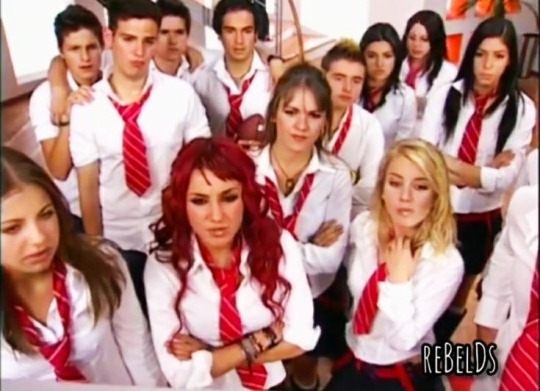
#jaque peneda#theo ruiz#leonardo goycolea#miguel arango#jack lizalde#lupita fernandez#pilar gandia#raquel sender#josi lujan#roberta pardo#sol de la riva
1 note
·
View note
Note
Hello ! Could you tell me facts about the life of Cesare Borgia? Thaanks.
So, I really wanted to make this a short list with basic facts, but somehow it ended up becoming a longer, detailed list with my favorites facts alongside facts that aren’t very well known or mentioned, here it goes: - Cesare received an outstanding, carefully planned education. He was brought up at Rome by private tutors until the age of twelve, in 1489 he left Rome to attend La Sapienza of Perugia, where he studied the foundations of law and the humanities, being placed under the charge of the preceptor Giovanni Vera of Archilla, to whom btw, he remained warmly attached until Vera’s death in 1503. In 1491 he continued his studies in Civil and Canon law at the University of Pisa, attending the lectures of Filippo Decio, one of most rated lecturer on canon law of his day. There he also became more acquainted with the Medici family, through Lorenzo de’ Medici sons: Giovanni de’ Medici and his brother Piero. - Paolo Pompilio, a Spanish scholar, dedicated his treatise on verse-writing, the Syllabica, to Cesare, where he praised him as ‘Borgiae familiae spes et decus’ (the hope and ornament of the House of Borgia). - His father, as Cardinal and Vice-Chancellor, invested a long list of benefices upon him, to name only a few: when he was seven years old, pope Sixtus IV conferred upon him a prebend of the cathedral’s chapter of Valencia. In 1483 he received the title of rector of Gandia and archdeacon of Játiva. Later on, with pope Innocent VIII he was granted the position of treasurer of Mallorca’s cathedral, following that of canon of Lérida, Archdeacon of Tarragona and then treasurer of Cartagena’s cathedral. By 1491, Innocent at last granted him the bishopric of Pamplona. - He learned the art of bullfighting from the Spanish members of his father’s court and it became one of his life passions. Whether in Rome or in the Romagna, at any celebration, there was almost always a bullfight and he was almost always participating himself. - He also loved hunting, so he was always looking for good hunting dogs and falcons. On May 28th, 1497 he even sent one of his men, Enrico, to Germany to request from the Archbishop of Mainz some “well-trained and sagacious hunting dogs; their quality to be more important than their number.” - He was the first person in the history of the Church to resign the cardinalate, eventually becoming commander of the Papal armies. - He was briefly hostage of the Colonna during the conflicts of the French Invasion in 1494, and later on hostage of the king of France, Charles VIII. Although that time, he escaped their camp at Velletri, with the help of a man named Francesco del Sacco, officer of the Podestà of Velletri, who was waiting for him with a horse. Cesare sped back to Rome going to the house of one Antonio Flores, where he stayed for a night and informed his father of his presence. The next day, he withdrew to the city of Spoleto, and remained there until matters cooled off. - In 1497, a sword was forged for Cesare, known as “the queen of swords”, for his visit to Naples as papal legate, to crown the new king, Frederick of Naples. Its design was attributed to many artists including Michaelangelo, but it is more likely that the artist was Pinturicchio. And the blacksmith/sword engraver was Salomone da Sesso (c. 1465- c.1504–21) who after his conversion to Christianity assumed the name of Ercole dei Fedeli. (more details about the sword here x) - Cesare appeared wearing a horned mask in the guise of a unicorn during a theatrical performance, in one of the many festivities held in honor of his sister Lucrezia’s second wedding. Unicorn are known symbols of female chastity, possibly a reference to Lucrezia and her wedding night, but it also shows off Cesare’s own sense of humour, since it was well known to all present that he was anything but a chaste man lol. And the unicorn horn, according to a Greek physician had the ability of protecting people from sickness and neutralizing poison, which could have been another humourous remark from Cesare in reference to his family’s reputation of using poison to dispose of their enemies. - His best known mistress was Fiammetta Michaelis, she was a cultured courtesan from Florence, but who lived in Rome since 1473 most likely. Her relationship with Cesare was such that even after his death in 1507, she continued to sign herself as Fiammetta Ducis Valentini (of the duke Valentino). And her will in the city archives was headed ‘The Testament of La Fiammetta of Il Valentino.” - On May 10, 1499, he married Charlotte d’Albret, and before his departure from France he appointed her governor and administrator of all his lands and lorships in France and Dauphiny. He also made her heiress to all his moveable possessions in the event of his death (a little more about that here x). On December 1501, he personally selected precious gifts to be sent to her acquired from Venice. It included moulded wax, white sweetmeats, fine sugars, syrups, nine barrels of Malvoisie, oriental spices, oranges and lemons and all kinds of cloths. - Under his patronage, the first printing press of any importance was established in Italy. It was set up at Fano by Girolamo Sancino in 1501. One of the earliest works was the printing of the Statutes of Fano for the first time in January 1502. - About his administration staff, also in the year of 1501, we know he had a beautiful young woman from Bologna named Jovanna, working for him in his chancery. She’s described as a “degnissma scriptora”, she wrote letters and maybe did other secretarial duties as well for 14 ducats. - Whether it was treachery or a legit, reasonable move against Guidobaldo's own plans of treachery against him, the fact is that Cesare acquired Urbino without bloodshed in any of the towns, in a brilliant coup that amazed the whole of Italy (and terrified the nobility lol). While leaving a military contingent at Camerino, Cesare road north through the Apennines, between Nocera and Urbino he covered more or less sixty miles in forty-eight hours with a mixed force of 2.000 men. Before anyone else knew, he had already took Cagli, inside the Duchy of Urbino. Simultaneously, two other points were taken too, Montevecchio and San Lorenzo. Di Naldo, one of Cesare’s captains came from the east. These three armies converged towards the capital of Urbino then, where they met with the castilian and the garrison was rendered by him. A few hours later Cesare himself entered the city without any resistence. - The famous Sleeping Cupid by Michelangelo that Cesare gifted it to Isabella d’Este when he took Urbino in 1502 had a history together. He had previously been the owner of this piece. Cardinal Riario Sforza bought in 1496, but apparently when he found out that the piece was a modern piece and not an antique, he didn’t wanted it anymore, so it was displayed across the street of Cesare’s palace and he bought before the end of the year and later on send it as a gift to Guidobaldo da Montefeltro, Duke of Urbino. - A popular canzona of the time, Donna contra la mia Voglia by Filippo de Lurano (c.1470-c.1520) was Cesare’s favorite song. (There is an excellent version of it too by conductor and composer Jordi Savall). - As another step to secure the unity of the Romagna, Cesare did a reform in legal administration of great importance, he established a supreme Court of Appeal, named the Rota, influenced by the famous Court of the Vatican with the same name. He appointed as The First President, a newly created office, to Antonio di Monte Sansovino, a distinguished jurist with high integrity, and who was universally beloved. This Appeal Court sat in the seven main cities of the Romagna: Fano, Pesaro, Rimini, Cesena, Faenza, Forlì and Imola. If it was necessary, this Court would sit for as much as two months. All expenses were met by a payment from each of these judicial circuits of 200 ducats per annum. - In October 1500 Pinturicchio wrote to Cesare asking for the grant of a well to be put in one of the lands pope Alexander VI had bestow on him and his descendents at Chiusi, a city in the province of Siena, but near Perugia. Pinturicchio went himself to see Cesare at Diruta to request for all the necessary permission. Cesare issued a letter to Alfano Alfani, vice-treasurer of Perugia, making the request and saying that: “he had again taken to his service Bernardino Pinturicchio of Perosa, whom he always loved because his talent and gifts; and he desires that in all things he should be considered as ‘one of ours.” This initial request wasn’t honored so Cesare wrote again to this Alfani reinforcing his wish to be granted within that year. In 1501, Pinturicchio was given an annual payment as Cesare’s personal painter as well. - Cesare hired Leonardo da Vinci as a military architect and engineer in the spring of 1501, he entrusted him with all sorts of projects, in Cesena for example he asked that Da Vinci planned a new quarter of the city with wilder streets, sidewalks, parks, and a functioning sewage system and many other improvements. He also issued papers from the city’s headquarters for the construction in Cesena of a new university building, a palace to house the Rota. - Cesare also commissioned Da Vinci to work on an alterpiece, that is now lost unfortunately, at the Santuario della Beata Vergine del Piratello, outside of Imola. Some scholars agree that Da Vinci at the very least begun this painting, but it was not finished by him. There are some sketches he made that are called: Three views of a bearded man and it’s generally accepted to be Cesare, in what might have become a portrait of him in this alterpiece. - Right after he conquered a city, it was Cesare’s policy to issue a stem proclamation against plunder, guaranteed the property of the citizens. At Forlì he took measures to safeguard the convents, listening to all complaints of ill-treatment or robbery at the hands of the soldiery. On December 7, 1500, he hanged from the windows of his headquarters, two of his own men, a Piedmontese and a Gascon soldier, who had disobeyed his orders against plunder in the town. On the 13th of the same month, other offenders followed the same fate as the first two, which showed his zeal and the level of his commitment for the interests of his Forlivesi subjects. - At Cesena, as in other places in the Romagna, that same policy was applied, the usual disorder was put to an end, and civic automony was fully restored, along with the suppresion of aristocratic feuds, which resulted on econonical security and internal peace. - During the conquest of Faenza, the only city where Cesare met a true resistance, he retired to Cesena through the winter months while the siege kept going there. One night, he was walking around the city when he found a baby girl abandoned in the street, he commanded the baby to be nursed, and settled an ample dowry on the baby’s mother until she was of marriageable age. Afterwards, when the father refused to acknowledge the girl as his own, Cesare himself acknowledged the girl and she was baptized that day. - On March 29, 1501, when he was informed of Beatrice of Naples arrival at Cesenatico, twice Queen of Hungary and of Bohemia, and sister of Frederick of Naples, he send off his staff to greet her and to present her with a 'royal gift'. He ordered his lieutenants to honor her in every city in the Romagna and the Marche region, where she made her way back to Naples. - On 1502, Cesare and his father, Rodrigo went on a boat trip to Piombino and the island of Elba so that Rodrigo could officially take possession of these territories Cesare had recently conquered. Everything went smoothly, and they were on their way back when a violent storm began, hitting them hard. During 5 days they wandered aimlessly. Everyone, but Rodrigo, were quite anxious and scared. At the second day, the crew saw an English ship, and Cesare proposed to go to this boat to request for help, but Rodrigo refused, not wanting to request help from strangers. Eventually they made it back ashore, but it was a close call there for them for awhile. - After the masterstroke at Senigallia, where he successfully arrested his conspiring condottiere, the city was in total confusion, and a part of Cesare’s infantry were starting to sack the city, so Cesare in full armour and on horseback gave orders for his men to stop the sacking immediately, he then gathered some of his captains and went about the city streets putting a stop to the abuses that were starting to happen, some soldiers however, refused to obey his orders, and they were promptly executed there for their disobedience. - On 25 October, 1506 he managed to escape the Castle of La Mota, in Spain, a fortress that at that time worked as State prison, of maximum security, and where he was imprisoned. With the collaboration of his chaplain, and a servant of the governor's, named Garcia, along with the outside help from Count of Benavente, a powerful lord from the neighbourhood, who visited him regularly, he managed to climb down the 40 meter high tower with a rope, and if memory doesn't fail me, he was the only prisoner to have ever managed to escape this prison lool.
#anon ask#ask answered#cesare borgia#césar borgia#house borgia#historical facts#a few of these facts are only found in cesare italian bios#(alvisi and sacerdote)#and some of them are not found in any biography about him at all#if the internet wasn't a thing#and if i wasn't so curious and obsessed#i'd have died without ever knowing about it basically djsdjsjd#and i find that unacceptable and it shows how his own biographers tend to ignore a lot of interesting details about his life#bc they are usually stuck on this same ridiculous formula of presenting him#and some of these info doesn't fit in the general profile they like to present him as nor with their narratives#so it's mostly ignored by the vast majority of them#anyways idk if that was what you wanted anon#but i hope you like it!#it was fun to make it#<3
133 notes
·
View notes
Text

¡ Bienvenido a Londres, LEONARDO ADRIAN GANDIA FERRER ! Después de una profunda revisión por parte del consulado, parece que todos tus papeles de residencia están en completo orden, por lo que la impresionante ciudad Londinense está preparada para recibirte.
¡ Hola, Alek ! Gracias por interesarte en nosotros, tu audición ha sido aceptada. A partir de ahora cuentas con 24 horas para mandar la cuenta de tu personaje, pero si llegas a necesitar más tiempo, no dudes en pedirlo.
☆ DATOS OOC:
Nombre/Seudónimo: Alek
Pronombres: Él
Edad: 23
País: México
Nivel de actividad: 7/10
Una cuenta en donde te podamos ubicar: (removido por la administración)
¿Permites y/o escribes smut (escenas +18)?: Bastante
Triggers: Pedofilia, violaciones
Contraseña: (removido por la administración)
¿Tienes algún comentario?: Ya me volví adicto con cuatro personajes.
☆ DATOS IC
Nombre completo del personaje: Leonardo Adrián Gandia Ferrer
Edad: 32
Cupo/Ocupación: Auxiliar de vuelo / Modelo
Faceclaim: Alfonso Herrera
¿Cuanto tiempo tiene en Londres? 4 años
Personalidad:
Leonardo suele ser poco expresivo con su rostro pero por dentro es una persona bastante interesante y extrovertida, suele pasar momentos con amigos y suele ser muy romántico con todos, tiene ciertos rasgos seductores y generalmente no puede contenerse a coquetear con las personas por lo cual sobrepasa los límites en algunas ocasiones, aunque sabe detenerse cuando alguien le dice que no.
Suele ser centrado para tomar decisiones importantes pero generalmente termina haciendo lo que mejor convenga en el momento sin mirar en el futuro.
Es un enamoradizo y un poco iluso.
+ (alegre, empático, paciente) - (evita responsabilidades, celoso, impulsivo)
☆ DATOS IMPORTANTES
Leo creció en México, su familia tenía renombre y una serie de restaurantes en toda la república que les dio bastantes recursos, podría decirse que realmente nunca sufrió por nada, pero al tenerlo todo fue un tanto malcriado y se volvió lo bastante vago para que no le interesaran las cosas en lo absoluto.
Conforme fue creciendo se dio cuenta que no destacaba entre los demás compañeros, estudió bachillerato pero no se sentía apto para estudiar alguna licenciatura aunque siempre lo quiso, lo único que pudo estudiar era para ser modelo porque todos le decían que era guapo además de que tenía un buen cuerpo por el ejercicio que hacía diariamente.
A través de las fiestas cada semana se volvió “rp” de varios antros, tan solo con decir “LEO” obtenían descuentos, eso se debía a que generalmente posteaba fotografías semi desnudo en Instagram y tenía tantos followers que se volvió una especie de influencer.
Su vida era tan vacía y monótona que solo salía de fiesta, ponía fotos en redes sociales, sus padres comenzaron a desesperarse de él y prácticamente lo echaron de su casa, por lo cual solo decidió salir a enfrentar el mundo realmente, Londres era el lugar más lejano en el cual podía relativamente iniciar una nueva vida, (aunque sus padres aún le daban dinero en cierta forma).
Una vez en Londres se instaló pero su vida comenzó a ser lo mismo, estuvo un tiempo en Underground Night Club hasta que lo reemplazó un chico llamado Elliot, ciertamente más joven y apropiado para el empleo, se hicieron buenos amigos a pesar de ello.
En un viaje para ver a su familia en México una aerolínea lo contactó porque al parecer tenía un perfil completamente indicado para ser sobrecargo en el avión, su nuevo trabajo dependería de ser lindo y atender a las personas, a cambio de una paga y poder estar varios días de viaje en cada vuelo lo cual sería perfecto para conocer muchos lugares, así que tomó ese empleo. Descansa varios días a la semana los cuales ocupa para tomarse fotografías o algún empleo extra, siempre postea todo y últimamente sus followers aumentan. Considera que es algo muy superficial pero tampoco le molesta.
☆ DATOS EXTRAS
Quiere encontrar a su amor perfecto aunque se la pasa probando de todos lados.
Eligió ser modelo porque todos le dijeron que podía serlo y creyó que si.
Lo contrataron en la agencia simplemente por su rostro.
Generalmente se acuesta con alguien distinto en cada vuelo.
Una vez tuvo relaciones con Gerard Withmore y siempre lo cuenta.
Siempre quiso estudiar alguna licenciatura pero nunca creyó que era suficientemente bueno para algo.
No tiene idea de que surgirá en su vida.
Siempre toma decisiones impulsivas y poco congruentes.
La mayor parte del tiempo no toma nada en serio.
Sigue evitando a su familia.
Su bebida favorita es el frappé de chicle.
Ha conocido muchos lugares por sus viajes.
Es muy puntual.
Tiene muchos seguidores en Instagram.
Tuvo que tomar clases para ser sobrecargo y toma cursos muy seguido.
0 notes
